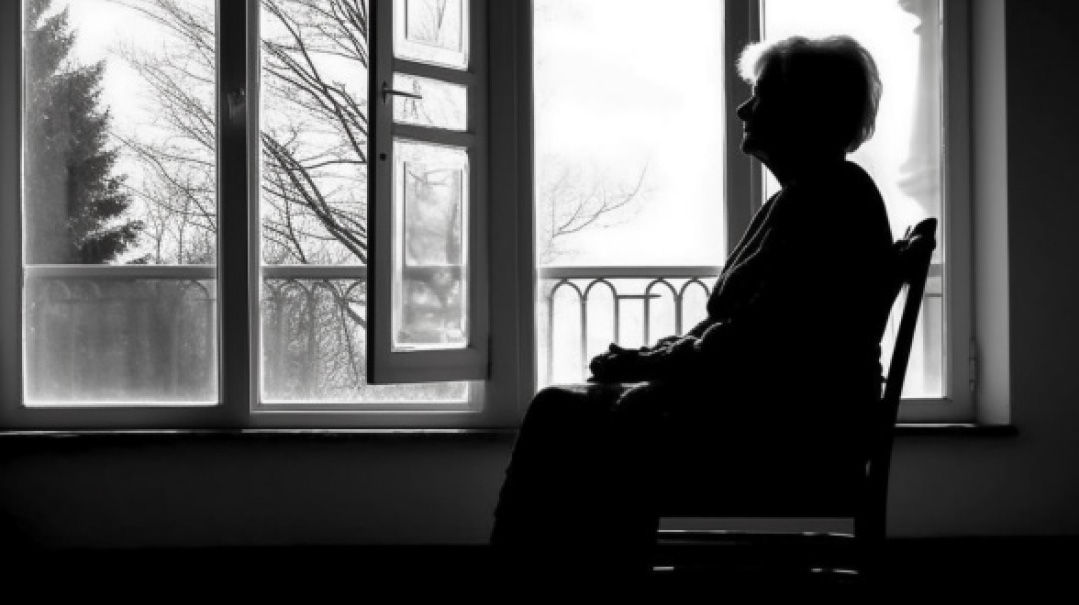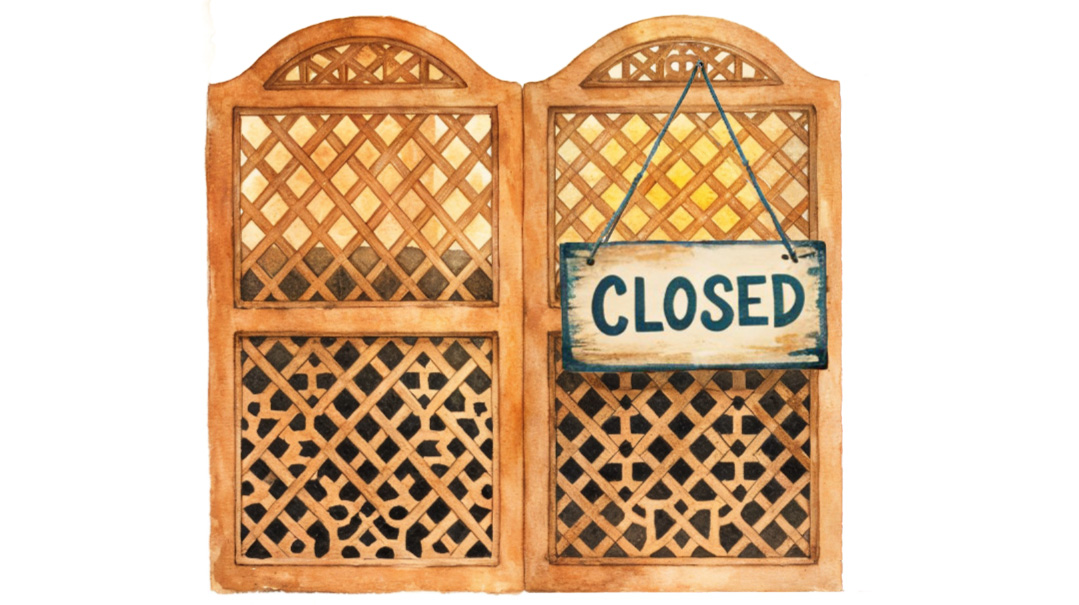Bobby’s Death Brought Her Back

“Hi, Bobby,” I said mentally. Then I froze. For the first time during the shivah, I felt overwhelmed

Bobby died. We’d been waiting a while for it to happen, said goodbye years ago, Alzheimer’s and all that. My husband poked fun that I’d bawl my kishkes out when it actually happened because I was so blasé during the years of her illness. I agreed. I was probably faking flippancy, because how else could I adjust to the reality that Bobby wasn’t going to be here one day?
I grew up next door to my grandparents, and Bobby fulfilled every Hungarian grandmother cliché, the way she cooked, baked, sewed, hosted, doted, all that stuff. Living next door, I got to witness it all. Unlike my cousins who lived in Flatbush or Monsey, I was there every day.
There were the few years that I got home from school before my mother, so I’d hang out at Bobby’s, watching Bill Nye the Science Guy and Where in the World Is Carmen Sandiego? There were also the weekly grocery trips; my grandfather would call us over to bring up the bags, and he often gave us a generous tip after.
Bobby was a tough cookie; she didn’t suffer any fools. Her voice was a bit hoarse, and she wore awful pearly nail polish. She also endlessly read shallow novels. I’ve since forgiven her for that.
She had the emunah peshutah of her generation, insisting when it came to dating, “The right one at the right time at the right place.” And then she’d follow it up with a sarcastic, “Es chapt mech un do” and point to her elbow instead of her heart.
During shivah, I gave myself a walking tour of her home, peering into every closet, opening every drawer. This was likely the last time I’d be here. Some of the drawers were empty; gone were the large sewing scissors and her address book. Other drawers had other items like plastic cutlery, a shanda. Bobby would never have used that.
My aunt saw me peep into the linen closet, run my hand along the soft sheets. “This is a sign of Bobby,” she said, pointing to the lace pinned to the shelf’s edge. “Her home was her palace, every place could be made more beautiful, even the linen closet.”
I smiled. Yeah, Bobby was an old-school doily type. I’d almost forgotten this part of her; it had been dormant for years.
We walked back to the kitchen, and I went to make myself a coffee. I looked around. My grandmother had three kids. “Three in three years,” she’d say. “And I waited for four years before that.”
Baruch Hashem, there were many grandkids and great-grandkids.
A cousin brought in sushi, and my kids tried to mooch some from him. Another came in with iced coffee and muffins. Others sat around the kitchen table, schmoozing, while the real shivah happened in the living room / dining room area.
It felt like a Chanukah party. It was fun. I finished making my coffee, leaned against the sink, sipped a bit, and from my little corner, I took in the space.
“Hi, Bobby,” I said mentally. Then I froze. For the first time during the shivah, I felt overwhelmed. I turned my back, faced the windows so no one could see my eyes well up.
When Bobby got lost within her mind, I couldn’t visit. I was a terrible grandchild, but it was too hard to see her like that. To talk into a void. My son was amazing with her. He accepted her, spoke to her, hugged her, even when she got scrawny and scary, sunken eyes and jutting joints. Other kids recoiled; he stayed close. I tried, but couldn’t.
My mother would urge me to visit when I came to Brooklyn. I’d send my kids, but I’d rarely make my way over to visit the stranger who inhabited Bobby’s body. Her aides were amazing; they’d help move things along, keep the conversation and the cheer, play endless games of Rummikub in which my grandmother no longer followed the rules.
I spoke to her a few nights before she died, via FaceTime. She smiled, and I’ll see that smile for the rest of my life. But I know she wasn’t smiling at me. That was who she was, a smiling person who was naturally kind and warm.
And now, a simple, “Hi, Bobby” during shivah broke the dissonance in me. For the first time in six years I could talk to Bobby, and she’d hear me. I could have a real conversation with her, and she’d understand.
I may have lost Bobby years ago, but her death brought her back to me.
(Originally featured in Family First, Issue 842)
Oops! We could not locate your form.







